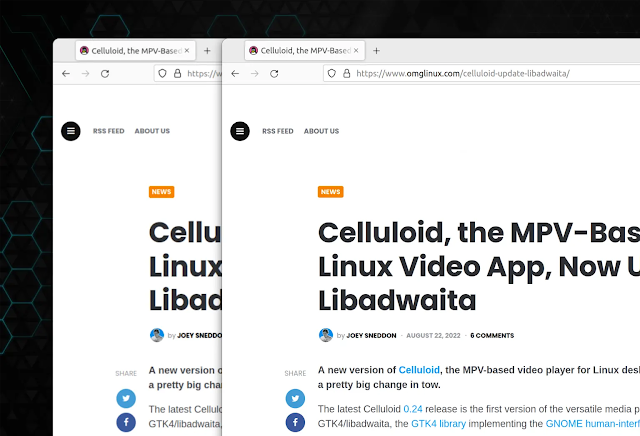Ubuntu 22.04: The Linux desktop for work
In October 2004, Ubuntu Linux's founder, Mark Shuttleworth, had a vision. He'd create a Debian-based Linux that would be free for everyone from students to global enterprises. Now, 18 years later, the Ubuntu promise is still being kept, offering support for developers, businesses, and the largest of public clouds. Its latest iteration, Ubuntu 22.04, aka Jammy Jellyfish, offers everything anyone needs from a top-of-the-line Linux distribution.
Ubuntu is an important operating system on everything from telecom's 5G clouds to Raspberry Pis and from AI development to the Internet of Things (IoT). As Shuttleworth said in a press conference, "Our mission is to be a secure, reliable, and consistent open-source platform -- everywhere."
With Ubuntu 22.04, that's exactly what they've done.
Also: Ubuntu 22.04 is one of the best releases from Canonical yet
This starts with Ubuntu 22.04 being a long-term support (LTS) release. That means this version will be supported with maintenance updates for five years (until April 2027). However, Canonical, Ubuntu's parent company, offers patching for five more years, for a total of 10 years. The lifecycle is made up of an initial five-year maintenance period, during which maintenance updates are publicly available without an Ubuntu Advantage Subscription, and five years of Extended Security Maintenance (ESM). The full lifecycle is available with an Ubuntu Advantage subscription or a free personal subscription. This extended support is vital for businesses.
This is true no matter where you use Ubuntu, from mainframes to Raspberry Pis. For now, though, I'm focusing on the latest Ubuntu 22.04 desktop.
I've been running Jammy Jellyfish on my 2020 Dell Precision 3451. This high-end PC originally came with Ubuntu 20.04. It is powered by an Intel 8-core 3GHz i7-9700 CPU, and it also includes 16GB of RAM and a 512GB SSD.
That's far more computer horsepower than Ubuntu needs. You can install and run Ubuntu 22.04 on any system with a 2GHz, 2-core 64-bit processor, 4GBs of RAM, and 25GBs of storage. If your PC came with Windows 7, it can run Jammy Jellyfish.
Installing Ubuntu 22.04, like any modern Linux, is a lead-pipe cinch. The short version? Download Jammy Jellyfish, burn it to a USB stick, boot from the USB stick, run it to see if it likes your hardware, and then press the install button. That's it.
However, if you're already running Ubuntu 21.10, you can't upgrade yet to this newest version. According to the Ubuntu 22.04 release notes, "Upgrades to 22.04 LTS are currently not enabled (due to a bug with snapd and update-notifier) but will be in the next couple of days."
Under the Ubuntu hood you'll find the brand new Linux 5.17 kernel. One difference is that going forward the Ubuntu Desktop uses a rolling Hardware Enablement (HWE) kernel (linux-hwe-22.04). The rolling HWE kernel is based on the v5.15 kernel for 22.04.0 and 22.04.1 point releases. The point is to make sure users get all the advantages of the newest kernel and X Window graphic support.
If you have NVIDIA graphics, you'll get access to the Linux-restricted modules of NVIDIA drivers on ARM64, in addition to the existing x86_64. ARM64 users can now use the ubuntu-drivers tool to install and configure NVIDIA drivers from the Ubuntu Archive. You can also use the display server protocol, Wayland, with Nvidia graphics cards now.
This additional hardware support isn't so much for gamers as it's for Artificial Intelligence (AI) and Machine Learning (ML) developers. With it, you can install NVIDIA virtual GPU (vGPU) software drivers and NVIDIA vGPU Software 14.0.
All of this supports a GNOME 42 desktop (GNOME is Ubuntu's default desktop). You can, of course, use many other Linux desktop GUIs such as the KDE Plasma Desktop, MATE Desktop, or Cinnamon.
Also: How to install Ubuntu Linux (It's easy!)
GNOME 42 offers a cleaner, more refined desktop than its predecessors. What I liked most about the new GNOME Shell desktop is its new screenshot tool. All you need do is hit the screen-lock button and you're ready to take a screenshot. The Nautilus file manager also now has a scrollable path bar; you can also create and extract password-protected .zip files from it. Both are very handy features.
The only major difference is that two of GNOME's long-time desktop applications have been replaced: Gedit and GNOME Terminal.
Gedit's replacement is Text Editor. It's a bit easier to use, but the real win with this editor is that it finally includes autosave. It also has a highlight mode, which developers will find useful.
As you'd expect, Ubuntu 22.04 also comes with the latest versions of the most popular Linux desktop applications. For example, LibreOffice 7.3.2 for your office suite, Thunderbird 91.8 for e-mail, and Firefox 99.0.1. If you need more programs, Ubuntu makes it as easy as searching and clicking to install new programs.
For business users, Ubuntu 22.04 also supports such industry compliance standards as PCI-DSS, HIPAA, and FedRAMP. If you're in a Windows-centric office, Active Directory (AD) is now fully supported in the Ubuntu installer with Advanced Group Policy Object. This enables admins to allow more refined AD user permissions and script execution control.
All-in-all, I think the new Ubuntu 22.04 is an excellent Linux desktop. Beyond that, it's also a great Linux distribution for almost any purpose.








